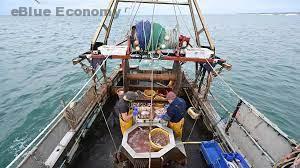London, UK. In a collaborative international effort with multiple stakeholders, Human Rights at Sea today issues a new Fisheries Observer Infographic 1.0 as a freely available first edition education and information tool detailing the context, scope, and safety awareness of these key fisheries role.
The tool forms part of the HRAS international program for the Global Protection of Fisheries Observers which includes detailed reports and resources free to access on the subject matter.

Working closely with the Association for Fisheries Observers, WWF, the Global Tuna Alliance, the US Coastguard, the Sustainable Fisheries and Communities Trust, Blue Marine Foundation, and PNA Tuna, the new document provides a detailed and current headline review of observer employment, role, working environment, scope of data collection and necessary safety equipment, profiled for greater public awareness.















